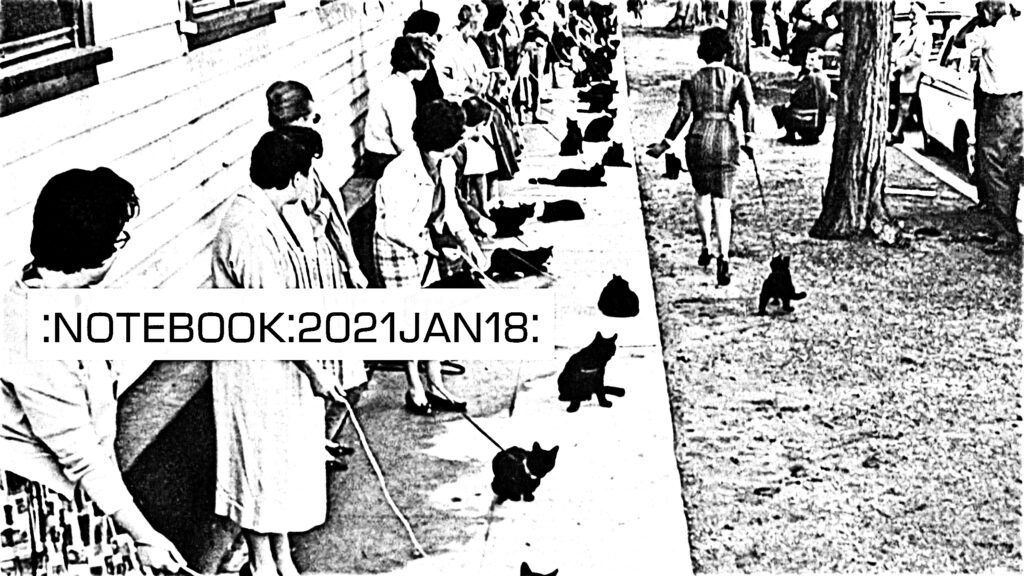
Spotify Song Purge → There’s something fishy going on in streaming-land, according to entertainment lawyer Wallace Collins:
It appears that on January 1, 2021, Spotify enacted a massive, global takedown of music from thousands of independent artists. Upon information and belief, some 750,000 songs were removed, the vast majority of which appear to have used Distrokid for distribution. This appears to be targeted at any independent artist who used a third party playlist or independent marketing service to promote their music – or any third party advertising outside of the Spotify platform … in the case of my particular clients, we are talking about legitimate third party advertising and promotional services as opposed to “bots” or other artificial means of generating increased streams.
It’s worth noting that Spotify has a financial stake in Distrokid, which was also named by the platform as one of its ‘preferred distributors.’ If Collins’s info is accurate, then this is an embarrassing moment for Distrokid. Hypebot spoke to a source within Spotify who claims the purge wasn’t as dramatic and didn’t favor Distrokid.
I also wonder, outside of Collins’s clients (who surely make up only a tiny percentage of that 750k), if these removals are mostly due to bootlegs and identical track schemes. Spotify has received recent bad press about podcasts filled with unlicensed songs and the proliferation of ‘white noise scammers.’ Knowledge of these issues has floated around for a while, but a featured article in Variety might be the thing to inspire this sudden action.
——————
The Toxic Music Svengali → Phil Spector’s death is renewing uncomfortable — but necessary — conversations about the artist’s separation from the art. Generally, it’s okay to appreciate the beautiful art of horrible people. But the artist doesn’t get a pass when the art is brilliant and influential. BBC News’s flubbing of Spector’s obituary headline illustrates the outrage of not understanding this nuance. Laura Snapes addresses this eloquently today in The Guardian:
Spector is known as the innovator of the “wall of sound” recording technique and countless moments of pop sublimity. They are inextricable from his everyday barbarism, waving guns around and holding them to musicians’ heads to enforce his will. The combination created a pernicious infamy: if the songs are so majestic, then the behaviour must be justifiable. Where Spector’s famous “boom-cha-boom-cha” drum sound on Be My Baby (played by Hal Blaine) instantly summons a pristine moment in pop history, Spector’s living legacy is that of music industry abuse going unchecked because the art is perceived as worth it – or worse, considered “proof” of wild and untameable genius.
The whole piece is worth reading, addressing a history of behind-the-scenes producers (all men) using aloofness and supposed genius to excuse terrible behavior. As Snapes notes, “Not all producers are violent predators, but the role offers ample cover for anyone who chooses to exploit it.”
It’s fine to continue enjoying the cavernous qualities of Spector’s production, but not without remembering (and discussing) the man’s cruelty. One simple part in punishment for abuse and awful deeds is linking the work to the context of the monster who had a hand in creating it. That doesn’t necessarily make the work any less brilliant, but can serve to instruct others of their responsibilities as artists and mentors.
——————
Hyperpop Redux → A tip of the hat to Joe Muggs for turning me on to this educational video about the emergent genre of hyperpop. I previously gave hyperpop some ink in my examination of genres here on the blog, and I remain fascinated. In a clickbaity way, the video title asks if hyperpop is “the future of pop.” The short answer is “no,” but hyperpop is undoubtedly influencing the future of popular music. I believe Simon Reynolds once pointed out that one can look to the extremes in genres for oncoming trends that will infect the mainstream. 100 Gecs might not become pop, but dialing back their excesses creates a blueprint for an edgier top 40. And, as you sample recent work of some of the artists named in the video, you’ll hear moves away from some of hyperpop’s defining characteristics. It’s a genre in flux, which is evidence of its potential longevity and influence.

